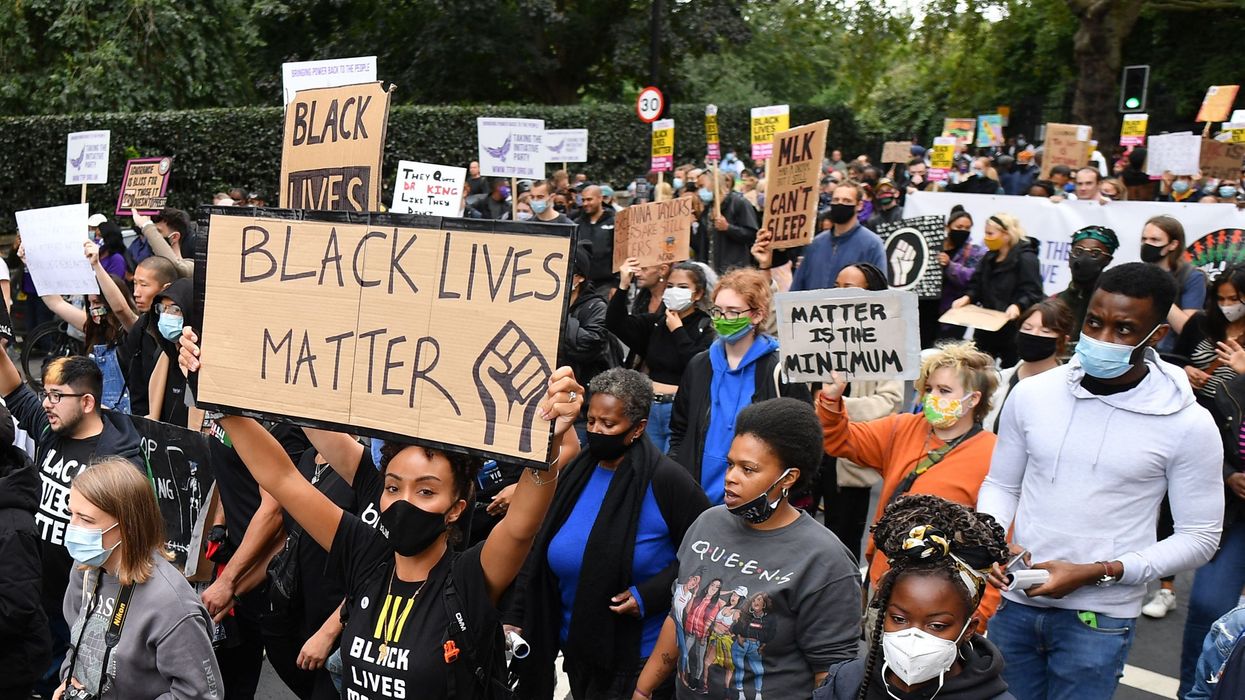The commission behind a controversial report on racial disparity has hit back at critics amid a continued backlash over its findings.
The authors, who have faced strong criticism since the review was published on Wednesday, say disagreement with the Government-backed report has “tipped into misrepresentation”.
It also defended itself against accusations the report had put a “positive spin” on slavery, claiming in a statement that any suggestion it had done so was “as absurd as it is offensive”.
The landmark review by the Commission on Race and Ethnic Disparities (Cred), said Britain is no longer a country where the “system is deliberately rigged against ethnic minorities”. Its chairman said it had found no evidence of “institutional racism”, and the report criticised the way the term has been applied, saying it should not be used as a “catch-all” phrase for any microaggression.
But the panel faced a backlash over the report, commissioned in the wake of the Black Lives Matter movement, with politicians and other public figures describing it as insulting and divisive.
Read more
- Chinese takeaway goes viral for savage responses to customers
- Greta Thunberg pulls off ultimate April Fools’ prank
- 10ft snake pulled from toilet after biting man’s bum
- 21 of the funniest and most cringe April Fools’ Day 2021 jokes
- Man’s marriage proposal brutally rejected in front of a busy shopping mall
In a statement reacting to some of the criticism published on Friday night, the commission said: “Sadly, however, in some cases fair and robust disagreement with the commission’s work has tipped into misrepresentation.
“This misrepresentation risks undermining the purpose of the report – understanding and addressing the causes of inequality in the UK – and any of the positive work that results from it.
“We have never said that racism does not exist in society or in institutions. We say the contrary: racism is real and we must do more to tackle it.”
What was the issue around slavery and how has the commission responded?
The panel has sought to defend itself against “a wilful misrepresentation” of its views on slavery, after its chairman faced criticism over the way he explained its recommendation on teaching history in schools.
In commission chairman Dr Tony Sewell’s foreword to the report, he said the recommendation is the body’s response to “negative calls for decolonising the curriculum”.
He wrote that the resource should look at the influence of the UK during its Empire period and how “Britishness influenced the Commonwealth” and how local communities influenced “modern Britain”.
He added: “There is a new story about the Caribbean experience which speaks to the slave period not only being about profit and suffering but how culturally African people transformed themselves into a remodelled African/Britain.”
Highlighting the passage on Twitter, Labour’s shadow women and equalities secretary Marsha de Cordova said it was “one of the worst bits” of the report which was “putting a positive spin on slavery and empire”.
In response, the commission said: “There has also been a wilful misrepresentation by some people of the commission’s view on the history of slavery.
“The idea that the commission would downplay the atrocities of slavery is as absurd as it is offensive to every one of us.
“The report merely says that in the face of the inhumanity of slavery, African people preserved their humanity and culture.”
What else did the commission address in its statement?
The commission also rebuked politicians and other public figures for “deeply personal attacks” on its members in the statement, calling it “irresponsible and dangerous”.
“For example, one MP presented commissioners as members of the KKK,” the statement said.
“Robust debate we welcome. But to depict us as racism deniers, slavery apologists or worse is unacceptable.”
The commission said it hoped that the report will be “read carefully and considered in the round”, adding: “Our experience since publication only reinforces the need for informed debate on race based on mutual respect.
“The 24 recommendations we have made will, in our view, greatly improve the lives of millions of people for the better if they are all implemented.”
The commission did not respond to the growing number of authors and academics who have challenged their “participation” in the review since its publication.
What were the report’s key points?
The Commission said claims that Britain is still institutionally racist are not borne out by the evidence, but overt racism remains.
In a foreword, Sewell said evidence had found that factors such as geography, culture, religion, family influence and socio-economic background had “more significant impact” on life chances than the existence of racism.
The report states that there have been improvements such as increasing diversity in elite professions and a shrinking ethnicity pay gap, although disparities remain.
It also found that children from many ethnic communities do as well or better than white pupils in compulsory education, with black Caribbean pupils the only group to perform less well. And it says the pay gap between all ethnic minorities and the white majority population has shrunk to 2.3 per cent, and is not significant for employees under 30.
The document hailed education as “the single most emphatic success story of the British ethnic minority experience” and the most important tool to reduce racial disparities. Success in education and, to a lesser extent, the economy “should be regarded as a model for other white-majority countries”, the Commission adds.

However, it also notes that some communities continue to be “haunted” by historic racism, which is creating “deep mistrust” and could be a barrier to success.
It makes 24 recommendations, including for extended school days to be phased in, starting with disadvantaged areas, to help pupils catch up on missed learning during the pandemic.
The Commission also recommends that the acronym BAME (Black, Asian and Minority Ethnic) should no longer be used as differences between groups are as important as what they have in common.
And it calls for organisations to stop funding unconscious bias training and for the Government and experts to develop resources to help advance workplace equality
The report also thanks the “mainly young people” behind the BLM movement for putting the focus on race but said progress could not be achieved by “cleaving to a fatalistic account that insists nothing has changed”.
How did people react to the report?
Former equality and human rights commissioner Lord Simon Woolley said the report was a “monumental moment missed” following the death of George Floyd in the US last year and subsequent Black Lives Matter protests.
Labour said the report was a “divisive polemic” which has insulted people by downplaying institutional racism, while unions said the report was “deeply cynical” and denied the experiences of black and minority ethnic workers.
Labour MP David Lammy, branded the report an “insult to anybody and everybody across this country who experiences institutional racism”.
Speaking on LBC, he said: “British people, white and black, are dying to turn the page on racism.
“They are working in food banks to support the marginalised. They are teaching in after-school clubs to raise awareness. They are working in rehabilitation centres to end the cycle of disproportionate mass incarceration.
“Boris Johnson has just slammed the door in their faces by telling them that they’re idealists, they are wasting their time. He has let an entire generation of young white and black British people down.”
He continued: “Let’s not forget that this report was rushed out in response to the overwhelming desire for change after the murder of George Floyd where thousands of people rallied for the black men, women and children suffering still, excluded in this country because of institutional racism.
“This report could have been a turning point and a moment to come together. Instead, it has chosen to divide us once more and keep us debating the existence of racism rather than doing anything about it.”
Top 100
The Conversation (0)














